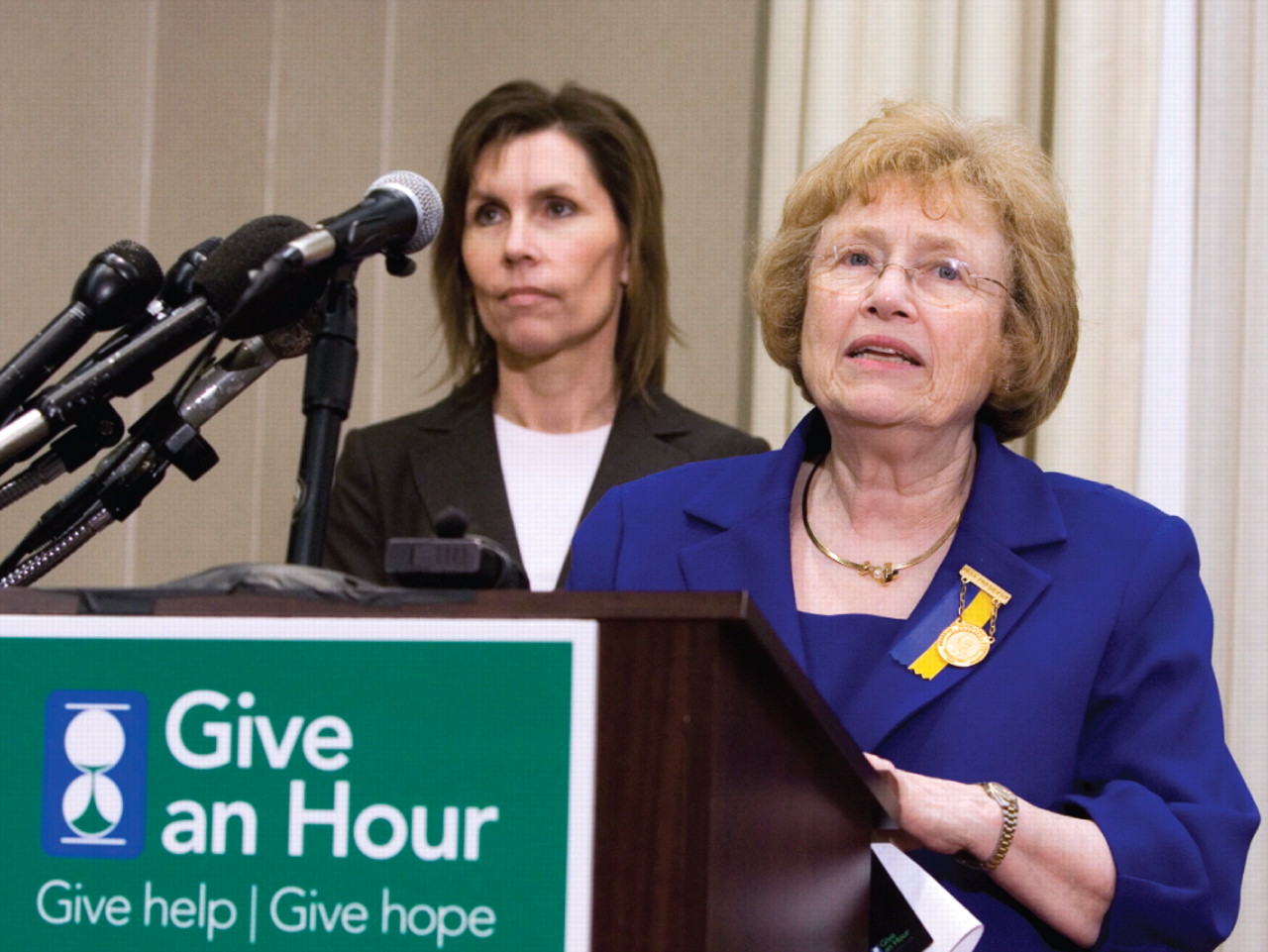Volunteer Mental Health Outreach Wins $1 Million Grant
Psychiatrists and mental health professionals are being called upon to volunteer their services to Give an Hour as part of a nationwide effort to meet the mental health needs of U.S. military members returning from Iraq and Afghanistan, veterans, and their families.
Leaders of Give an Hour, the American Psychiatric Foundation, and the Eli Lilly and Company Foundation Inc. convened a press conference in Washington, D.C., in May to announce a $1 million grant from the Lilly foundation to expand the care provided by Give an Hour.
Barbara Romberg, Ph.D., the founder and president of Give an Hour, said at the press conference, “We in the mental health community now have the opportunity to do our part by giving our time and skills to the men and women who defend and serve our nation.”
Give an Hour is a nonprofit organization founded in 2005 by Romberg, a psychologist practicing in the Washington, D.C., area. Its mission is to develop a network of psychiatrists and mental health professionals who offer pro-bono services to people with acute and chronic mental health problems after they have served in either of the two war zones, veterans, and their families (Psychiatric News, May 16).
So far, the organization has a network of more than 1,200 clinicians, including psychiatrists, psychologists, psychiatric nurses, and licensed counselors, Romberg said. Their services are coordinated through a database located on the Give an Hour Web site, where military members, veterans, and their families can locate a mental health professional in their area.

Then-APA President Carolyn Robinowitz, M.D., calls upon APA members to volunteer their time and services to assist U.S. military members returning from Iraq and Afghanistan. At left is Barbara Romberg, Ph.D., who started the program Give an Hour in 2005 and received a $1 million grant from the Lilly foundation for recruitment and education efforts.
Credit: David Hathcox
Volunteers must sign up for a minimum of a year to provide services.
Romberg emphasized that the program is not meant to be a substitute for mental health services offered by the military or Department of Veterans Affairs, but as a supplement to what is available for military personnel and their families.
Carolyn Robinowitz, M.D., then-APA president and a Give an Hour volunteer, noted that “we at APA are pleased to join Give an Hour and promote wider access to mental health care. APA members now have the chance to make a real difference and help veterans go on to lead full and productive lives.”
The $1 million grant from the Lilly foundation, administered through the American Psychiatric Foundation, will go to recruit volunteers to the Give an Hour network and educate them about mental health issues related to combat.
Funds also will be used to educate the public about the mental health needs of military members returning from Iraq and Afghanistan. Robinowitz cited findings from APA's survey on military members and their families showing that 61 percent of military members surveyed believed that seeking treatment for a mental health problem would have at least some negative impact on their careers (Psychiatric News, May 2).
“These findings documented a greater need for discussion and education about mental health problems affecting deployed military personnel and their families,” Robinowitz said.
Steven Paul, M.D., executive vice president of science and technology and president of Lilly Research Laboratories, said at the press conference that“ a successful medical intervention often requires much more than just medication—patients need access to mental health professionals who can adequately diagnose and comprehensively treat them.”
“In this case, it's about [the Lilly foundation] supporting a network of partners across the country who will share their compassion and expertise to help those who have served this country,” Paul said.
Romberg noted that to accomplish its mission, Give an Hour has partnered with a number of military and mental health organizations, which include the Department of Defense, Department of Veterans Affairs, Armed Forces Foundation, and National Military Family Association.
“We have a duty to take care of one another,” observed Richard Harding, M.D., president of the American Psychiatric Foundation and a past APA president. Harding is a former Navy officer with a son who has served in the military in Iraq and Afghanistan. Harding described his experiences as a child and adolescent psychiatrist at Camp Pendleton Marine Base in California working with more than 150 refugee children who had been smuggled out of Vietnam to the United States at the end of the war.
“It became clear to me then that one does not escape war simply by leaving the war zone,” he said.
Information about Give an Hour and how to join the network of providers is posted at<www.giveanhour.org>.▪



